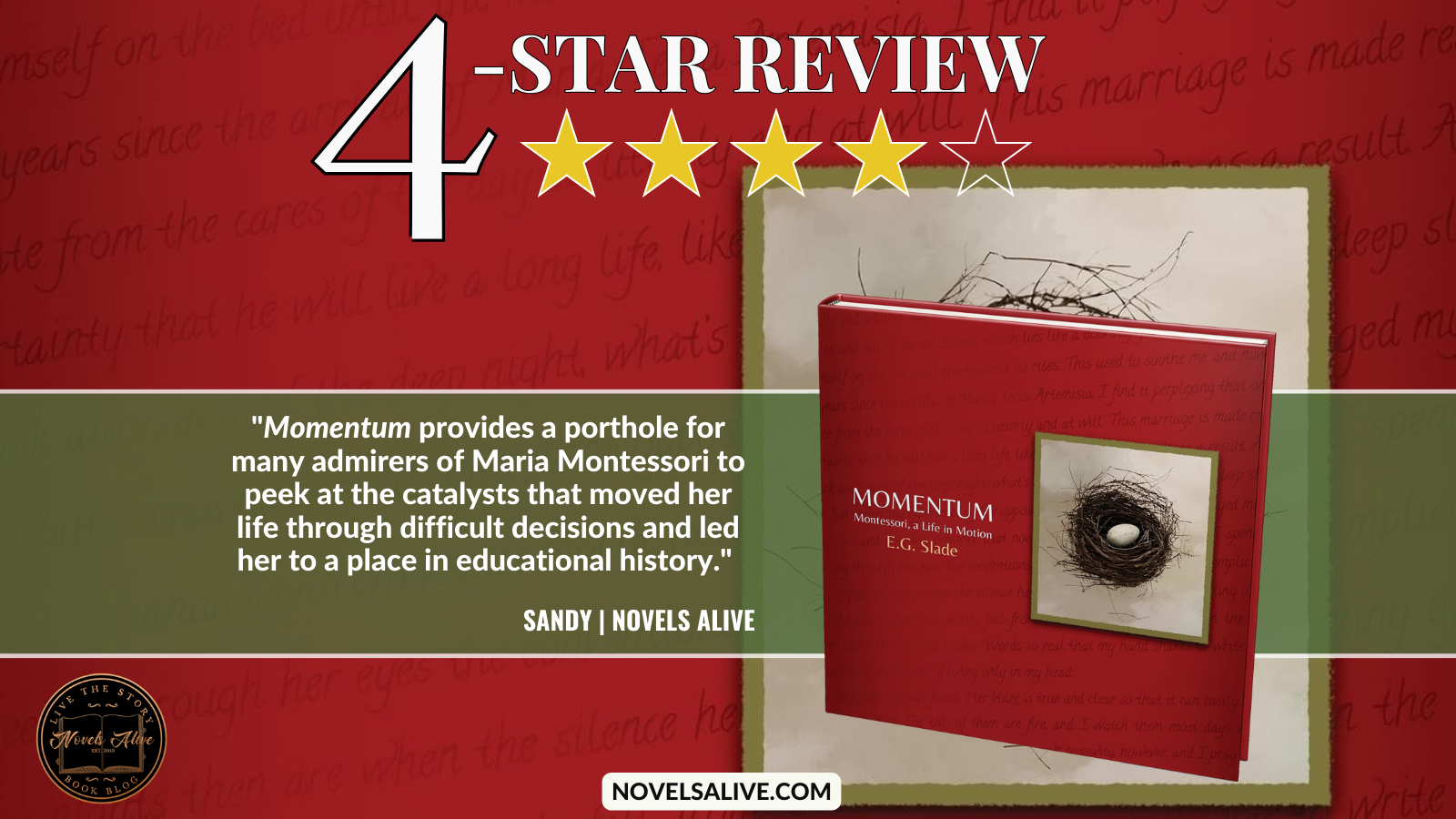

Publication Date: August 31, 2023
“Simply brilliant—no, complexly brilliant. I have never read a more absorbing, unflinching, intense embodiment of biographical fiction.”
— Sena Jeter Naslund, author of Abundance, a Novel of Marie Antoinette and Ahab’s Wife
“Elizabeth Slade has added a profound new book to the literature around Dr. Maria Montessori’s life that takes readers on a first-person historical fiction narrative that embraces Montessori’s personal life, her journey into motherhood, and ultimately, her humanity as the person behind this incredible movement.”
— Mariana Bissonnette, author of Babies Build Toddlers
Momentum is a captivating historical novel about Dr. Maria Montessori, a brilliant woman who defied societal norms, becoming one of Italy’s first female doctors and later revolutionizing education worldwide. Taking its bones from an actual diary written by Dr. Montessori in 1913 chronicling her first voyage to America, Momentum is a fictionalized retelling of that same journey. Written directly to her son, Mario, the novel illuminates their complicated relationship and how he came to be raised by others while she focused on her work. Momentum is a compelling portrait of a woman who overcame countless obstacles to leave a lasting impact on the field of education.

E.G. Slade pays homage to Maria Montessori in the historical fiction Momentum.
The story is reminiscent of an infinity mirror: one image reflects another, which reflects another…and continues. Slade seems to create her obvious admiration for Montessori as she composes the scene of the renowned educator penning a love letter to her child, while at times, in Montessori’s letter, there is a rumination of memories of her own mother, business partner, and lover, and many more of her life’s personal influencers. Yet, Maria is drawn back from these deep recollections and returns her words to focus on the missive to the son, who has only been a brief part of her life.
We find Maria Montessori on a long ship’s journey. The timeline begins when she is leaving the Orthophrenic School, an early school for children with learning difficulties, which was an important site for her early educational research.
Because her son was born out of wedlock, she opted to leave him in the care of another family so she could pursue her career. Now, as she travels across the ocean, she reflects on her life through the words she pens to her now 15-year-old, Mario. Both the ship and Maria are gaining momentum at this juncture. She is sailing toward America to broaden the reach of her methods. She is also moving personally as she leaves her long-time, secret love and begins to envision a time and place where she might be able to be a mother who is fully present.
The author appears to use her own knowledge of Montessori since Slade is a student and an advocate for this educational method. She acknowledges her use of fellow researchers’ previous followings of the life of this remarkable woman. She notes gratitude to the family of Maria Montessori for releasing diaries, which added depth to this work.
The language and literary flow were a bit difficult for me since it was written as Montessori telling her own story from the mid-1800s. Readers of Victorian-period writings will appreciate the blend of this expression with historical tidbits of such an important female figure. The book delves into the personal side of Montessori as opposed to her research and development of her work’s philosophy.
Momentum provides a porthole for many admirers of Maria Montessori to peek at the catalysts that moved her life through difficult decisions and led her to a place in educational history. 


















